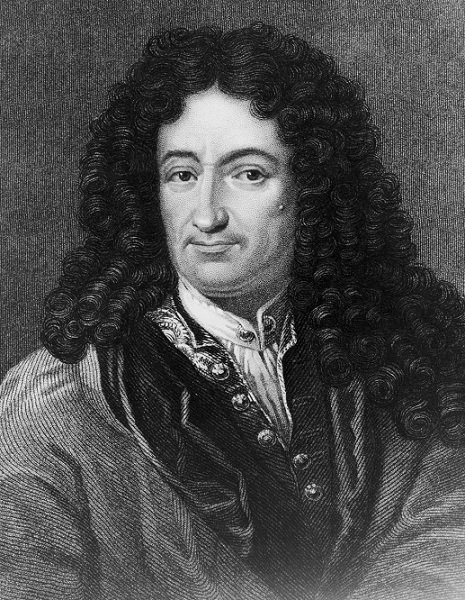Some thoughts about the philosophy of Gottfried Leibniz
Leibniz make an attempt to philosophically justify pluralism. He has contributed to law, philosophy, physics and logistics (4 law - for the sufficient reason). He helped build the Academy of Sciences in Berlin, St. Petersburg. He lived and worked in a period when Germany had lost an agrarian country divided into many possessions. Period of preparation for the bourgeois revolution. Corresponds to Hobbs, Spinoza.
Main Works: "Reflections on Physics" 1686; "A New System of Nature"; "New experiments on human reason" - basically. It is a response, criticism of Locke's empiricism in "Experiences on Human Reason"; "Theodicea" 1710; "Monodology" 1714, published 1721. He tries to pay due attention to the philosophical experience, to unite everything precious. Originally attracted to Spinoza's monism, he later moved away from him. Leibnitz made the first attempt to justify the infinite diversity of nature. "Can absolute difference be derived from absolute identity?" Difference is not an accident but a necessity, expressing the essence of things.
Leibniz accepts that the true philosophy may be strictly deductive. As Spinoza leaves from Descartes, but Leibniz, unlike him (monism), reaches philosophical pluralism - nature is infinitely diverse, there are infinitely many substances, individuals. He calls them monads. They are of a spiritual nature and a material envelope. It offers - matter is infinitely divisible, therefore it can not be a substance. One can only be the spirit, therefore, the monad is the unalterable, the simplest spiritual essence, the individual.
Ontology:
Leibniz is convinced that composite diversity in the created world is only explained if a number of simple substances are allowed - the monads. Obviously, everything is complicated by simple elements.He assumes that monads are the true atoms of nature (formal atoms). It requires each individual monad to differ from each other - the principle of individuality. Monad is a formal atom to emphasize the spiritual. Leibniz accepts, develops the idea that, because matter is not moving, material does not correspond to the definition of substance. It naturalizes matter = length = body. Formal atoms are characterized by active measurability.

To listen to the audio version of this article click on the play image.

Brought to you by @tts. If you find it useful please consider upvoting this reply.
Thanks for the briefing